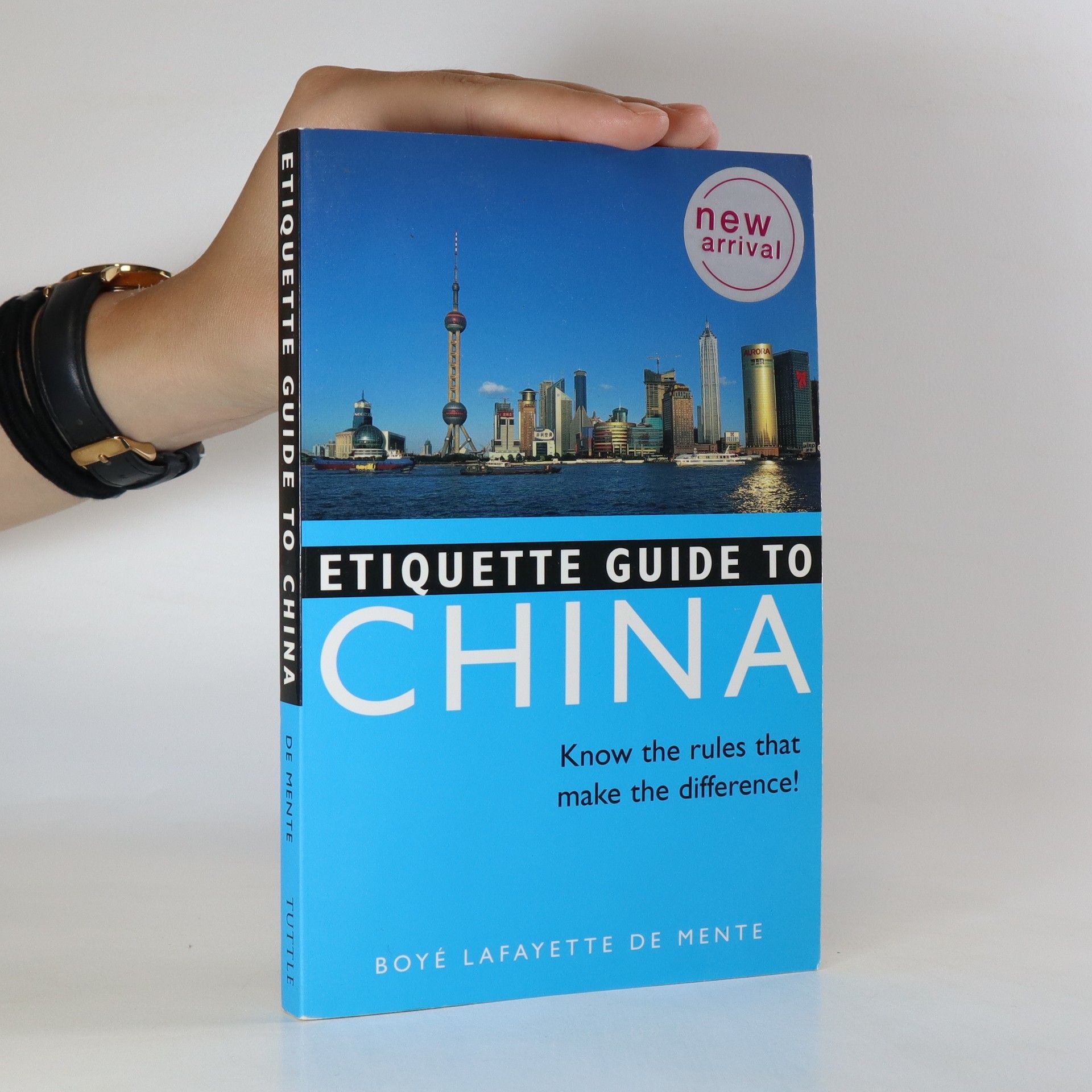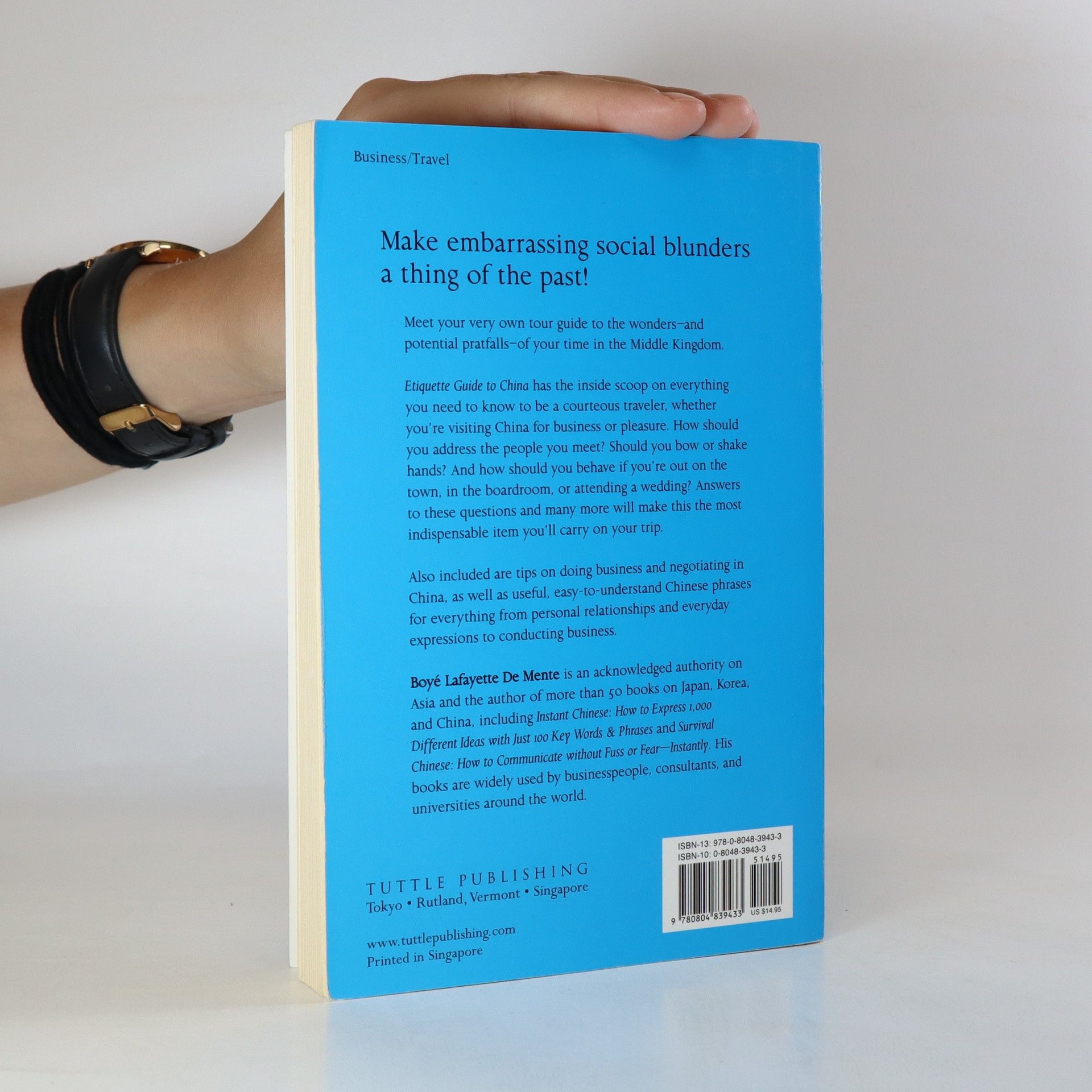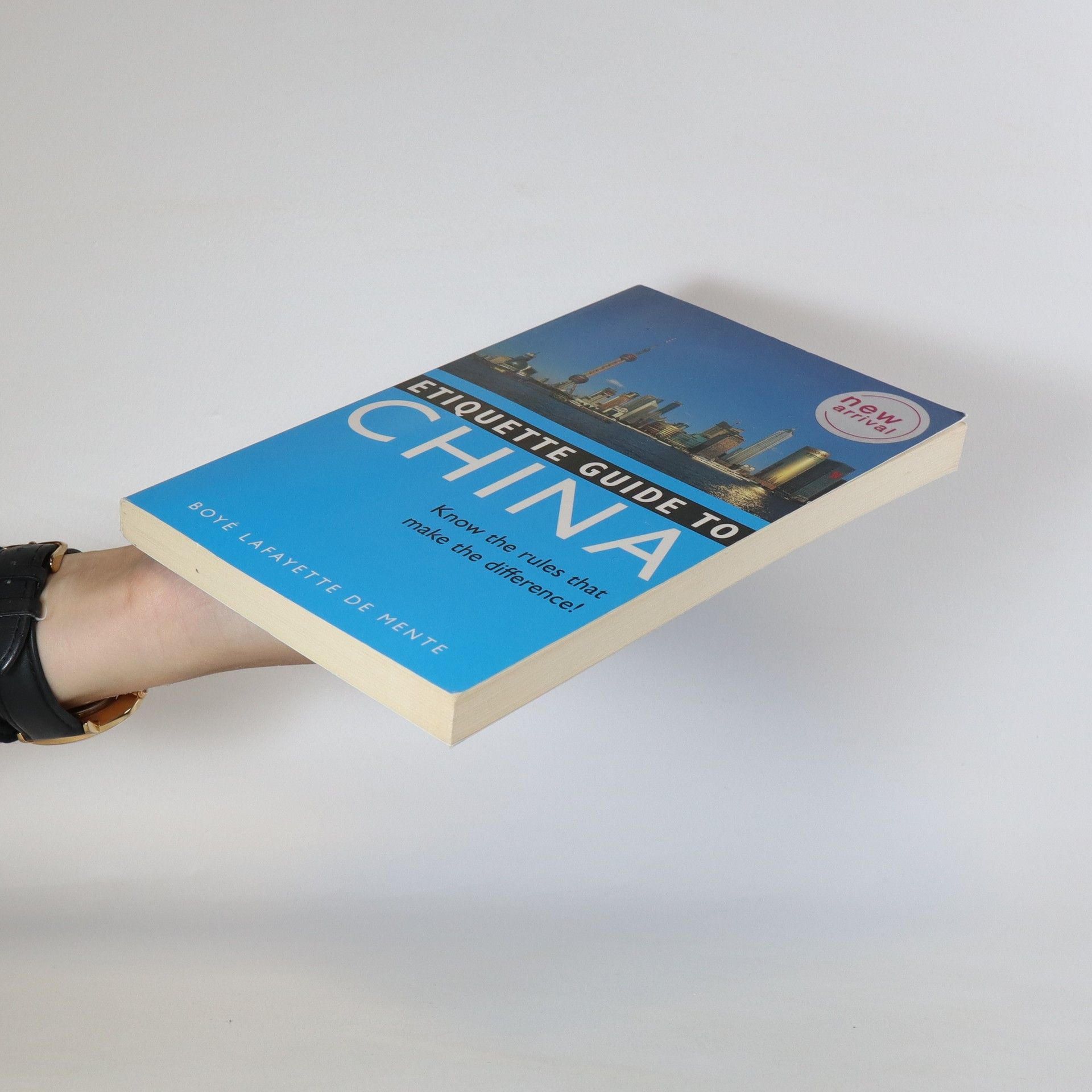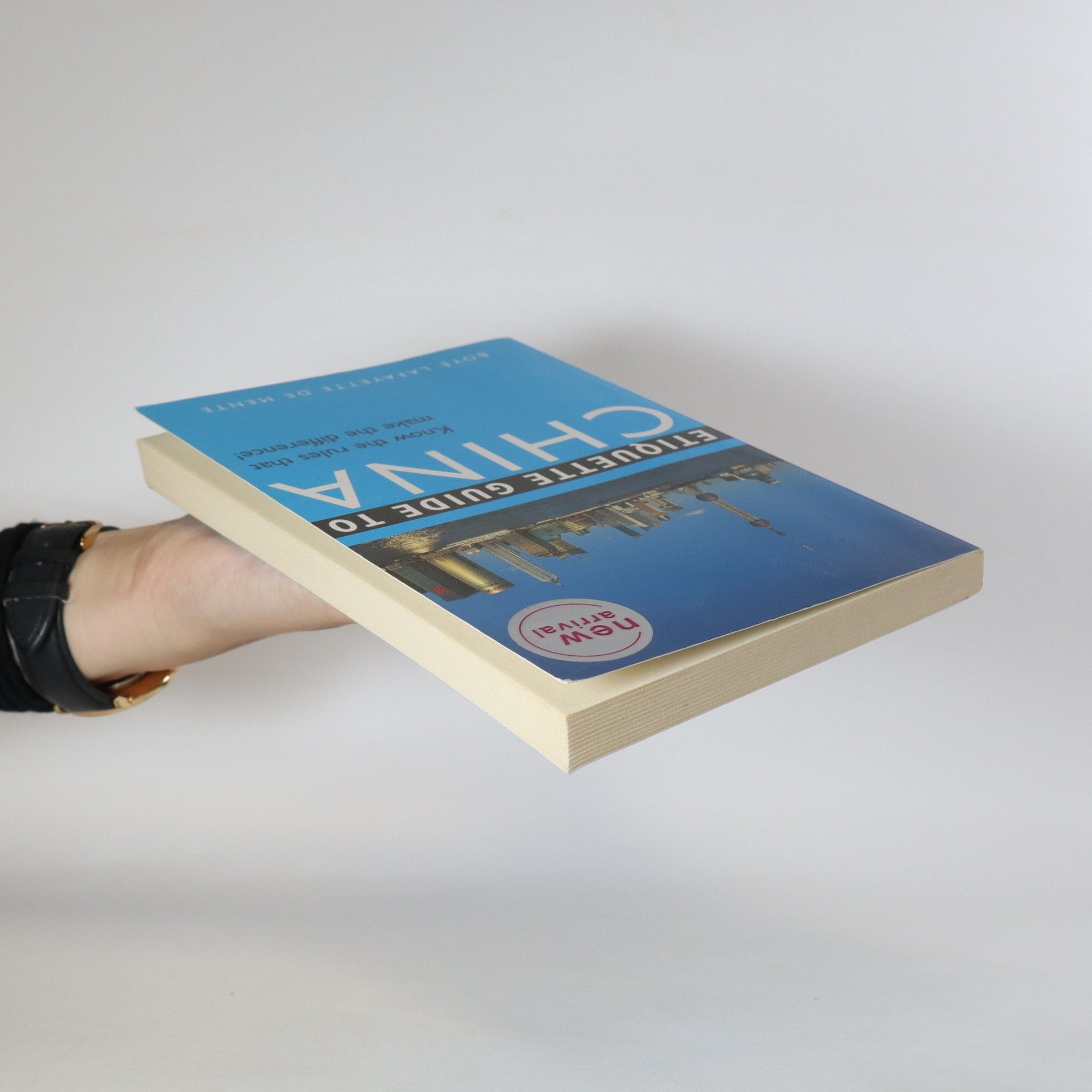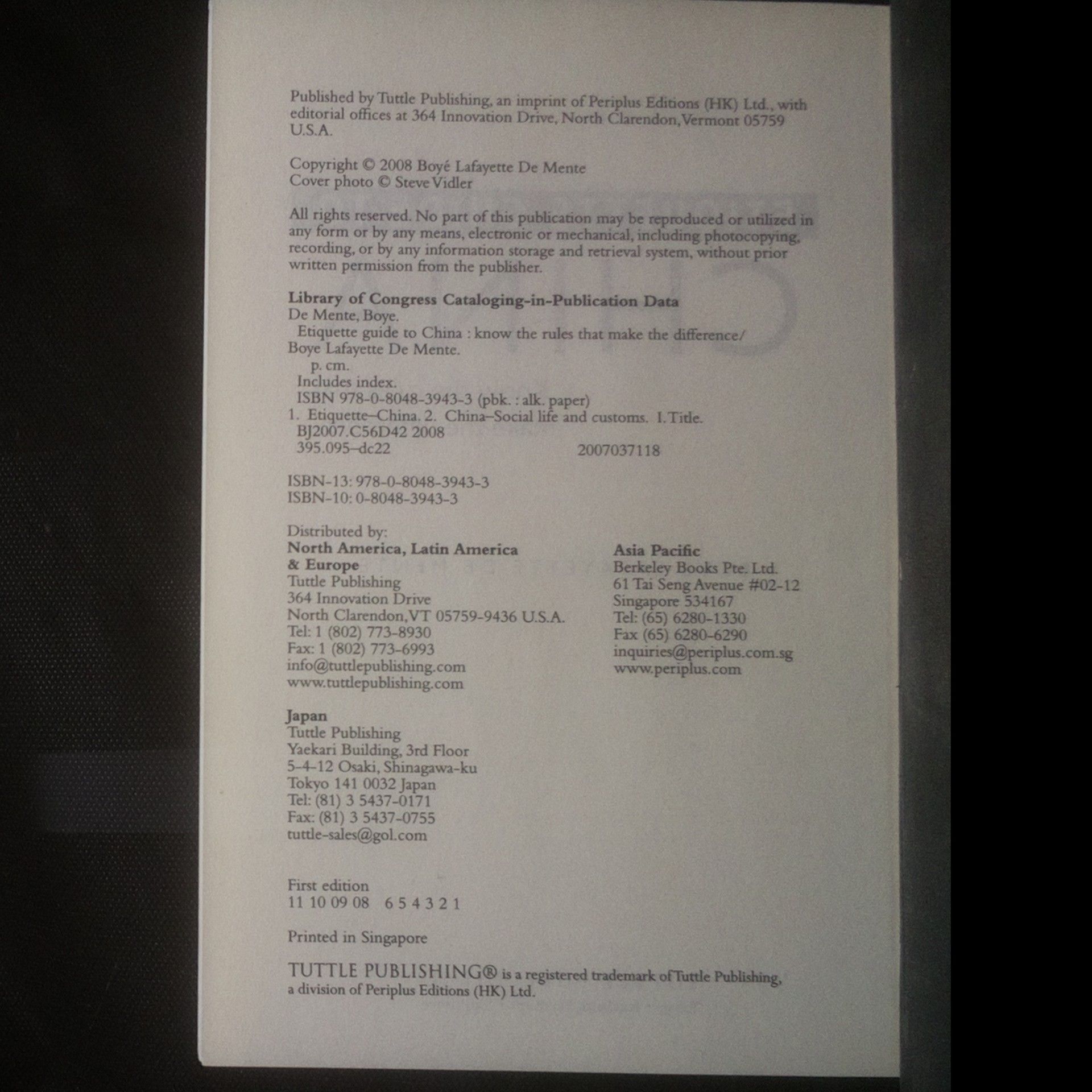More about the book
Say farewell to faux pas! Understanding Chinese culture enhances your travel experience, whether for business or pleasure. This essential guide is invaluable for businessmen, tourists, or students visiting China. It covers key interactions, including manners and etiquette, addressing people, body language, and appropriate behavior in various settings like social outings, boardrooms, or weddings. Filled with practical advice, this guide is a must-read for anyone traveling to China or engaging in business there. The author, Boye Lafayette De Mente, brings over thirty years of experience as a journalist and business consultant in Asia, providing an authoritative perspective on East Asian business and Chinese culture. He explores historical factors, collective traits, and individual qualities that shape Chinese interactions and business practices. The book is organized into several parts: The Middle Kingdom, which discusses the origins and influences on Chinese etiquette; Minding Your Manners in China, covering personal etiquette and celebrations; Business in China, focusing on the Chinese approach to business; and Negotiating in China, detailing negotiation strategies and expectations. An extensive appendix offers titles and useful Mandarin expressions, making this guide comprehensive and practical for navigating Chinese culture.
Book purchase
Etiquette Guide to China, Boyé Lafayette De Mente
- Language
- Released
- 2008
- product-detail.submit-box.info.binding
- (Paperback)
Payment methods
We’re missing your review here.
